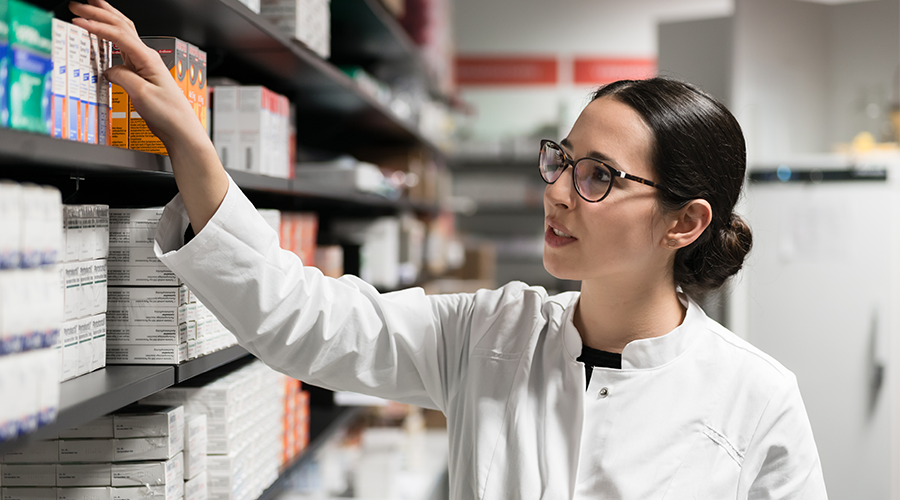Spread your wings a little wider in the new year by adding more revenue-building services to your pharmacy practice. While regulations vary state to state, adding an additional service or two will allow you to increase your clinical interactions with your patients and generate additional revenue. The National Community Pharmacists Association shares this short list of some products and services you may not have thought to implement.
Vaccine Clinics: It’s one thing to give vaccines, but holding immunization clinics is the key to growth. Reach out to local businesses, school districts, churches, government facilities, and daycare centers. Doing this will help you establish a baseline. Don’t just focus on one vaccine; include all of them. Employers can benefit from flu, COVID, pneumonia, shingles, travel vaccinations, and even standard vaccines. Make sure you include information on the cost benefits of having employees vaccinated.
According to the National Alliance of State Pharmacy (NASPA), 48 states, the District of Columbia, and Puerto Rico allow pharmacists to administer any vaccine, though some require prescription, and some have limitations by patient age. The exceptions are New Hampshire, New York, West Virginia, and Wyoming, which have limitations on what vaccines are allowed.
Point-of-Care Testing: Research shows that point-of-care testing is predicted to make more revenue than vaccines for community pharmacies. During point-of-care testing, screening and treatment process are completed during a single encounter. This improves access to care, counseling, and patient outcomes. Some of the common tests to offer include blood sugar, A1C, flu, strep, COVID, chronic disease screening, and chronic disease monitoring.
Long-Acting Injectable Drugs: Pharmacies can serve as alternate injection sites for long-acting injectable antipsychotic agents (LAIAs) and other medications. This can take place under collaborative practice agreements (CPAs) with mental health practitioners or through partnerships with LAIA manufacturers.
Weight-Loss Program: Does your community struggle with obesity? You can help them by starting a program to help them become healthier, live longer, and reduce their overall medical costs. A weight-loss service should focus on the long-term, overall health and wellness of the patient.
Smoking Cessation Counseling: You can implement smoking cessation counseling in several ways. Several states now have statutes or regulations addressing pharmacist prescribing of tobacco cessation aids. You can provide 30-minute consultations with patients to discuss their smoking options, including OTC nicotine replacement products and drugs the pharmacists can prescribe. You can charge a consultation fee to the patient, but the prescription drug dispensing is covered by insurance. A new Medicaid regulation provides payment for OTC nicotine replacement products as well.
Disease State Management (Asthma and COPD): Both asthma and COPD can result in various comorbidities. So, whether you offer one-on-one or group sessions for asthma/COPD management, your patients can see the long-term benefits of proper management and risk education. COPD patients need to stay up to date on their influenza and pneumococcal vaccinations, so focusing on free services is beneficial.
Pharmacogenetic Testing: Pharmacogenetics is the study of how a person’s genes affect the way he or she responds to drugs. It’s used to learn ahead of time what the best drug or the best dose of a drug will be for a person. While it may seem new, the field isn’t new at all. The FDA has approved a long list of drugs that require or recommend genetic testing as part of their prescribing. Pharmacies that offer this service usually partner with a lab. The pharmacist collects the sample and can also help the provider interpret the results. Coverage for genetic testing varies based on insurance plan, the type of test ordered, and coverage considerations. While it’s sometimes covered by insurance, those who are uninsured or underinsured may have to pay up to $2,000.
Medication Synchronization: This service is becoming more common and is now offered by 79 percent of independent pharmacies. Medication synchronization aligns all of a patient’s refills on the same day of the month. This saves the patient from making multiple trips to the pharmacy and keeps them from having to call in multiple refills throughout the month. That’s because you can call the patient prior to their appointment date and confirm all of their scheduled medications. Your patient then has the opportunity to request any as-needed medications. However, it’s important for patients to understand that while pharmacies don’t usually charge a fee to provide this service, insurance doesn’t always cover the early refills required to align their medications. So, as their pharmacist, it’s wise to try to find an appointment date that’s centered around a more expensive, branded medication.
Adherence Packaging: Offered by many independent pharmacies to help differentiate themselves from the chains, adherence packaging is a service where medications are packaged into blister packs or strips rather than bottles. A patient’s medications may also be packaged according to the day rather than by medication.
In addition to the extra services, many independent pharmacies have been implementing a mix of different products for additional cash flow, such as:
- High-end supplements: Be sure to offer a high-end solution to your patients, otherwise you’re missing out on that revenue. You’ll also need a team that’s trained to help sell the benefits of a higher-quality supplement. Be sure they’re able to effectively explain the difference between standard supplements compared to a higher-quality version to make sales.
- E-commerce: These online stores have helped drive traffic, improve patient engagement, and compete with chains by allowing people to order online for same- or next-day pickup or delivery. They’ve helped showcase products at the same or lower costs, and highlight their products and services. E-commerce has also brought in new patients by offering products not available elsewhere.
- Cash programs: These are available for any patient whether they’re insured, underinsured, or uninsured. Common cash prescriptions are for sexual health, cosmetic, weight loss, or chronic conditions.
- Nutrient depletion: Your team will need some basic training before offering this service. To get these products sold, everyone needs to know how to sell specific supplements to coincide with prescriptions. Unless your team is comfortable making supplement recommendations based on the patient’s regimen, it’ll be tough for you to make many sales.
- CBD: Whether it’s something a pharmacy should offer is up in the air with everyone’s own opinions. However, CBD has been a significant revenue generator for many pharmacies.
To know what would be best for your pharmacy, ask yourself these questions: What do your patients want or need? What do providers in your area think your community needs? What can you offer that will give your pharmacy a competitive edge? How much revenue are you wanting to generate?
Before making any changes in your business model, do your research. Not every clinical service will offer significant revenue, especially when you’re just starting out. However, experts are hopeful that new opportunities for reimbursement will come to fruition as insurers recognize the value of pharmacists’ contributions to healthcare. In the meantime, a little bit here and there can help your business grow.
From the Magazine
This article was published in our quarterly print magazine, which covers relevant topics in greater depth featuring leading experts in the industry. Subscribe to receive the quarterly print issue in your mailbox. All registered independent pharmacies in the U.S. are eligible to receive a free subscription.
More articles from the December 2022 issue:
- Increasing Patient-Care Services
- Your HSA Has Your Back
- Your Pharmacy’s Online Presence
- Rev Up Your Revenue in 2023
- Providing Routine Health Screenings
- The Best Apps for Your Pharmacy
- Cashing in on the Sniffles
- Aggression in the Pharmacy
A Member-Owned Company Serving Independent Pharmacies
PBA Health is dedicated to helping independent pharmacies reach their full potential on the buy-side of their business. Founded and run by pharmacists, PBA Health serves independent pharmacies with group purchasing services, wholesaler contract negotiations, proprietary purchasing tools, and more.
An HDA member, PBA Health operates its own NABP-accredited warehouse with more than 6,000 SKUs, including brands, generics, narcotics CII-CV, cold-storage products, and over-the-counter (OTC) products — offering the lowest prices in the secondary market.












